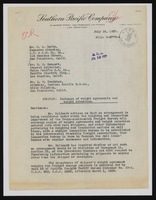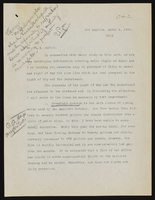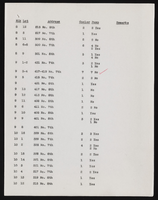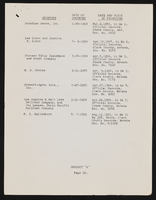Search the Special Collections and Archives Portal
Search Results
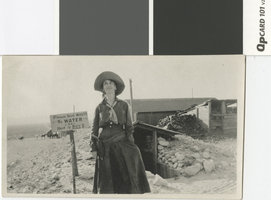
Photograph of a woman standing next to a water conservation sign in Jean, Nevada, circa 1920s
Date
Archival Collection
Description
Woman in Western-style clothing standing outdoors in Jean, Nevada next to a sign on a post which reads, "Please don't waste the water, we have to buy it."
Image
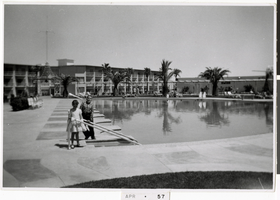
Photograph of Anita and Charles Perri at the Tropicana swimming pool (Las Vegas), April 1957
Date
Archival Collection
Description
Two children, Anita and Charles Perri, near the swimming pool of the Tropicana in April, 1957. Handwritten text from back of photo: "Tropicana Hotel, Apr. 1957. Anita and Charles Perri."
Site Name: Tropicana Hotel
Address: 3801 Las Vegas Boulevard South, Las Vegas, NV
Image
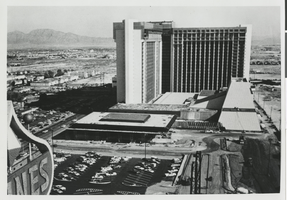
Photograph of the MGM Grand Hotel during its construction (Las Vegas), 1973
Date
Archival Collection
Description
The MGM Grand under construction in 1973. After the 1980 fire, the MGM Grand Hotel was rebuilt in 1981 and sold to Bally's Corporation to become Bally's Las Vegas in 1985.
Site Name: MGM Grand Hotel
Address: 3645 Las Vegas Boulevard South, Las Vegas, NV
Image
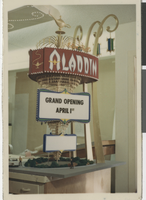
Photograph of a scale model of the Aladdin Hotel's sign (Las Vegas), 1966
Date
Archival Collection
Description
Detailed scale model of the sign and marquee for the Aladdin Hotel and Casino.
Site Name: Aladdin Hotel
Address: 3667 Las Vegas Boulevard South, Las Vegas, NV
Image

